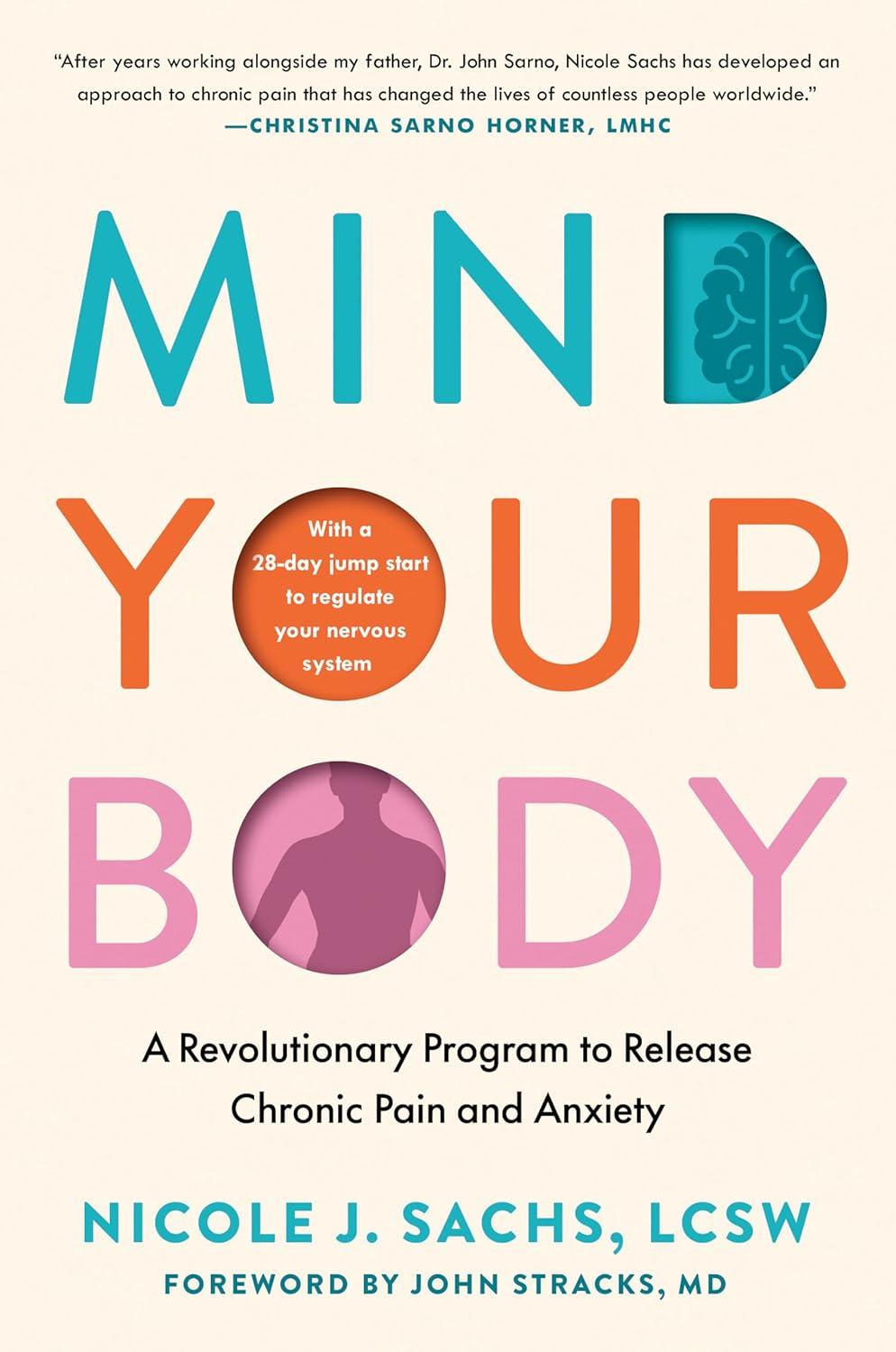
Exploring ‘Mind Your Body’: A Deep Dive into Pain Relief
In our exploration of “Mind Your Body: A Revolutionary Program to Release Chronic Pain and Anxiety,” we were intrigued by its holistic approach to wellness. The program integrates various techniques, including mindfulness, gentle movement, and psychological strategies, aiming to address not just the physical manifestations of pain, but also the emotional and mental factors that contribute to it. Throughout our review, we noted the emphasis on self-awareness and the body-mind connection, which we found to be a refreshing perspective in pain management. Additionally, the structured layout and user-friendly materials made it accessible for individuals at various stages of their healing journey. While we have yet to complete the program, initial impressions suggest it may provide valuable insights and tools for those dealing with chronic pain and anxiety. Overall, “Mind Your Body” invites us to consider a more integrated approach to our health and well-being.
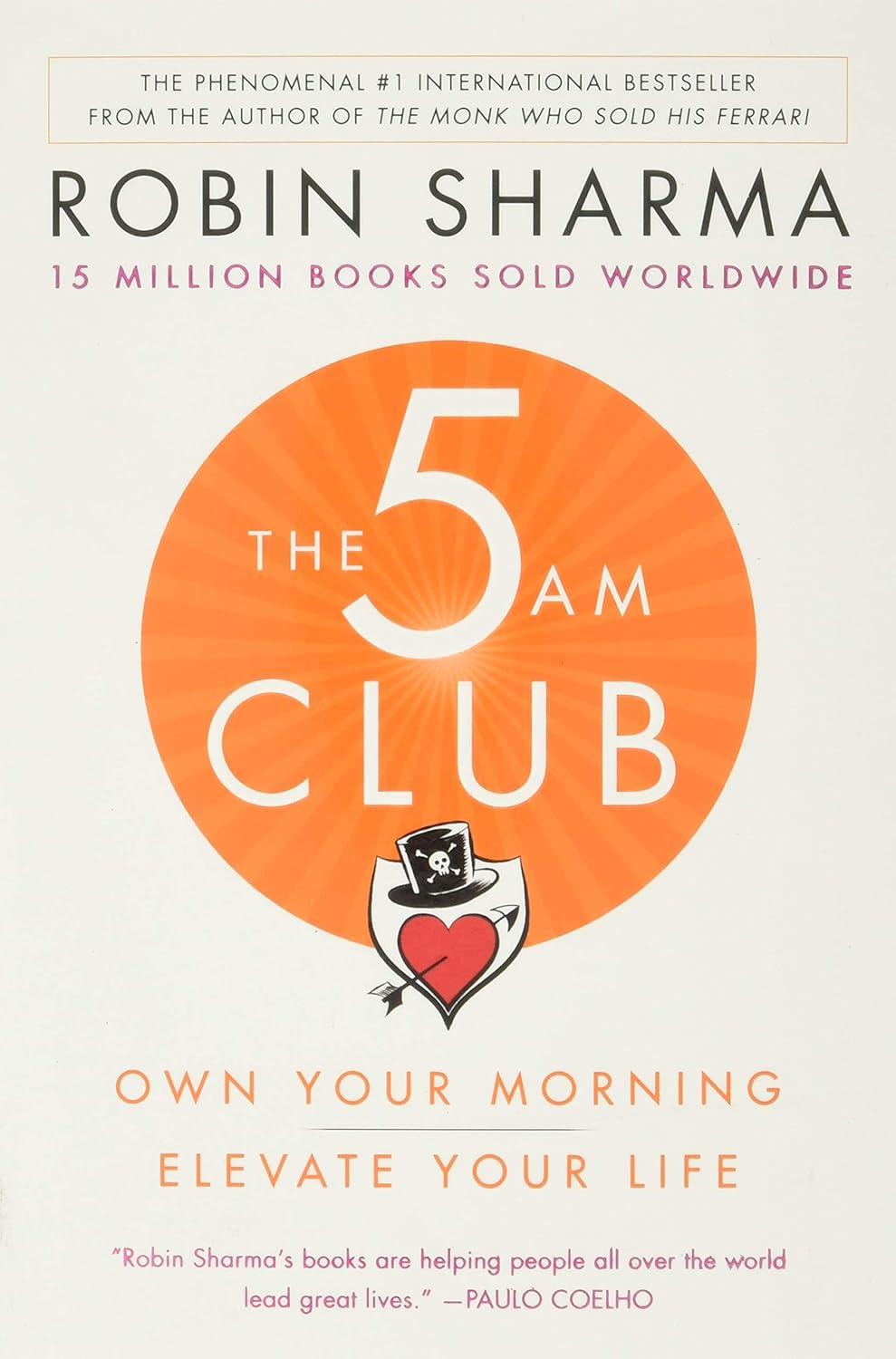
Exploring the Impact of ‘The 5AM Club’ on Our Morning Routines
In “The 5AM Club: Own Your Morning. Elevate Your Life,” Robin Sharma presents a compelling argument for rising early as a means to unlock our full potential. After incorporating the principles from this book into our morning routines, we noticed a significant shift in our daily productivity and overall mindset. The structured approach of dedicating the first hour of the day to personal development—comprising 20 minutes of exercise, 20 minutes of reflection, and 20 minutes of learning—proved effective in enhancing our focus and setting a positive tone for the day. While we initially faced challenges in adjusting our sleep schedules, the long-term benefits of increased clarity and motivation were evident. Overall, “The 5AM Club” encourages us to embrace the morning hours as transformative opportunities for growth, suggesting that the key to a fulfilling life may lie in how we start our day.
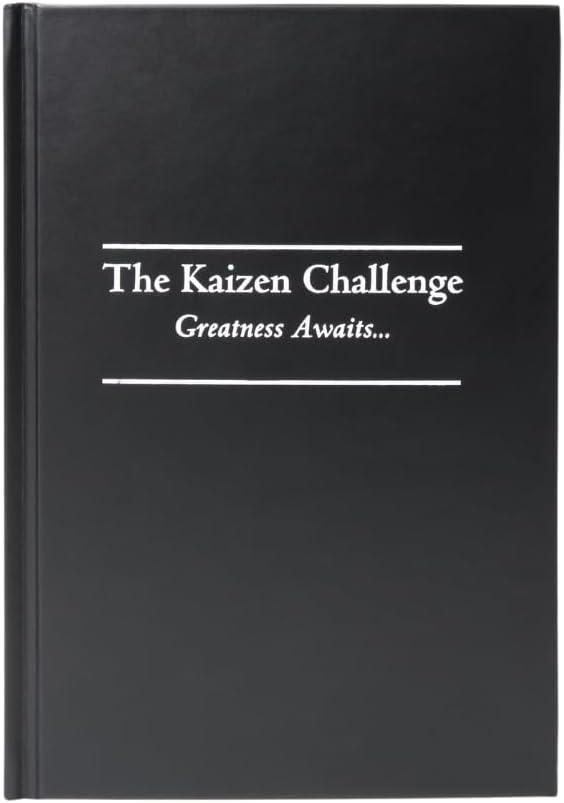
Exploring the 20-Week Self Improvement Journal for All
In our exploration of the “Self Improvement Journal for Men & Women,” we found a versatile tool designed to enhance productivity, discipline, and mental health. Spanning 20 weeks, this daily planner encourages users to track habits while setting achievable goals. We noticed that the layout promotes reflection and organization, making it easier to visualize progress over time. The emphasis on both personal and professional development resonates with a wide audience, providing a structured yet flexible framework for self-improvement.
Additionally, the journal includes sections for gratitude and mindfulness, which can positively impact mental well-being. However, we also observed that it may require a commitment to daily journaling for optimal results. Overall, this self-improvement journal serves as a practical guide for anyone looking to foster positive change in their lives, regardless of their starting point.
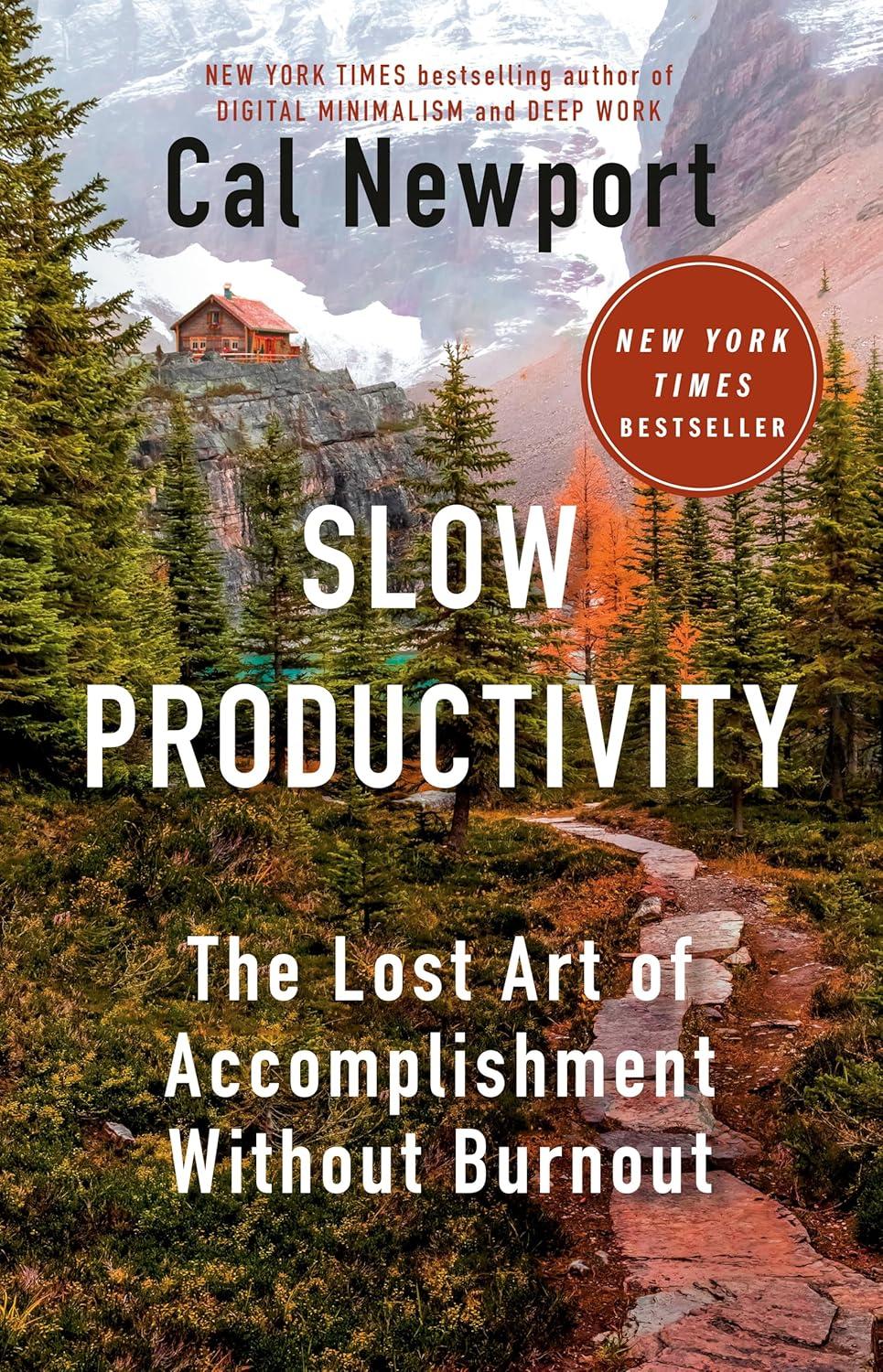
Exploring ‘Slow Productivity’: Achieving Success Without Burnout
In our fast-paced world, the notion of productivity often equates to relentless hustle and overwhelming schedules. However, “Slow Productivity: The Lost Art of Accomplishment Without Burnout” challenges this narrative by advocating for a more sustainable approach to achieving our goals. As we delve into its pages, we find a compelling argument for prioritizing mental well-being and meaningful work over sheer output. The book emphasizes the importance of pacing ourselves, encouraging reflection and intentionality in our daily tasks. Each chapter offers practical strategies to help us cultivate a balanced workflow, fostering creativity and long-term satisfaction. As we navigate the principles of slow productivity, we begin to appreciate the liberating effects of stepping back, allowing us to accomplish our tasks without the weight of burnout. Overall, this book serves as a valuable resource for anyone looking to redefine success on their own terms.
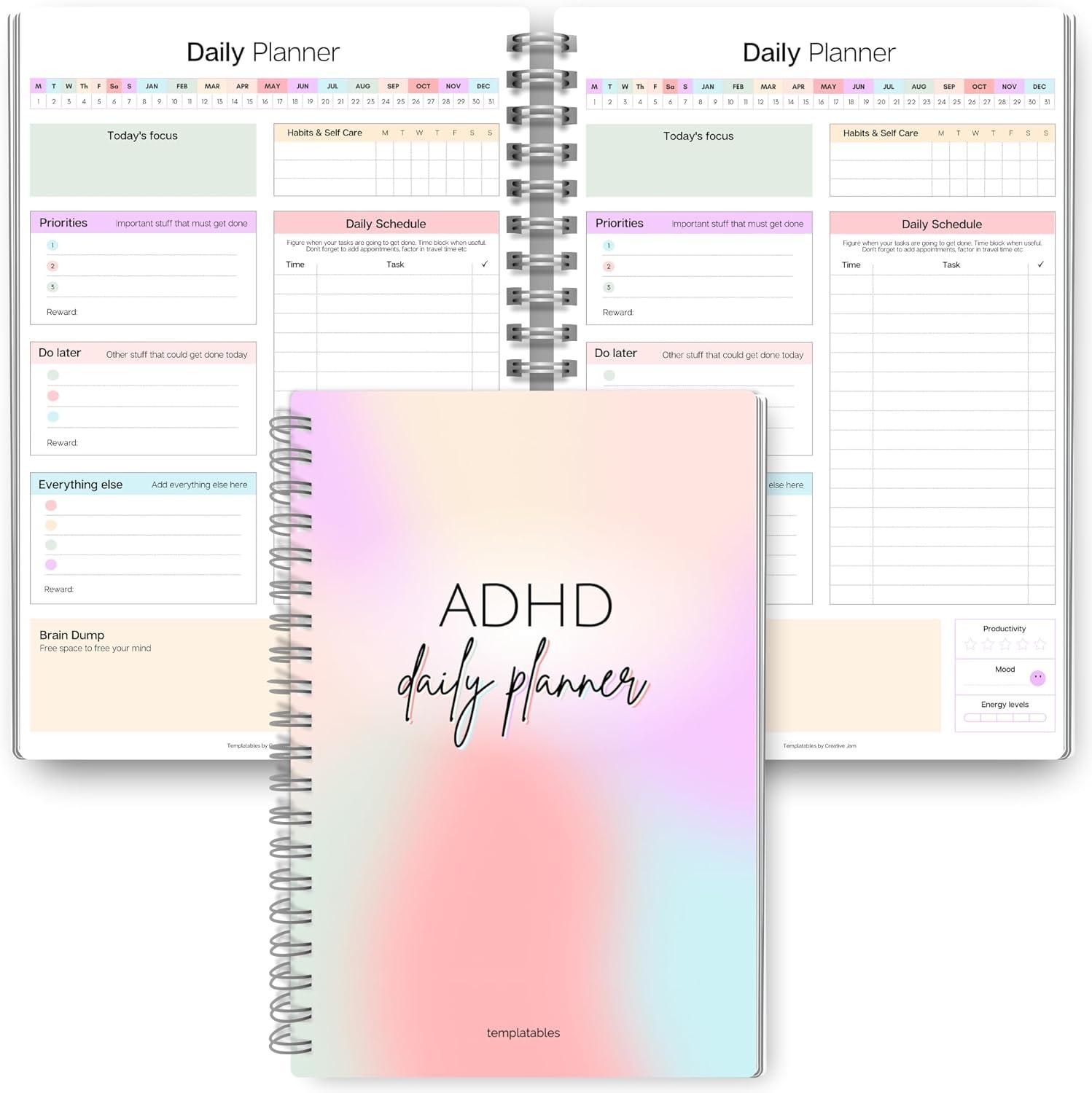
Reviewing the ADHD Daily Planner: Our Experience and Insights
In our exploration of effective tools for managing ADHD, we recently tested the “ADHD Daily Planner for Neurodivergent Adults – Productivity Daily Planner & Task Management to Stay Organized and Focused (Rainbow).” This planner offers a vibrant design combined with structured layouts that cater specifically to the needs of neurodivergent users. We appreciated the clear daily breakdowns, which helped us prioritize tasks without feeling overwhelmed. The inclusion of prompts for self-reflection and goal setting encouraged us to maintain focus throughout the day. Additionally, the sturdy binding and quality paper provided a tactile experience that enhanced our engagement with the planner. While it may not solve all organizational challenges, we found it to be a practical tool that supports daily productivity and encourages a more structured approach to our tasks. Overall, it serves as a helpful resource for those seeking to improve their day-to-day organization.
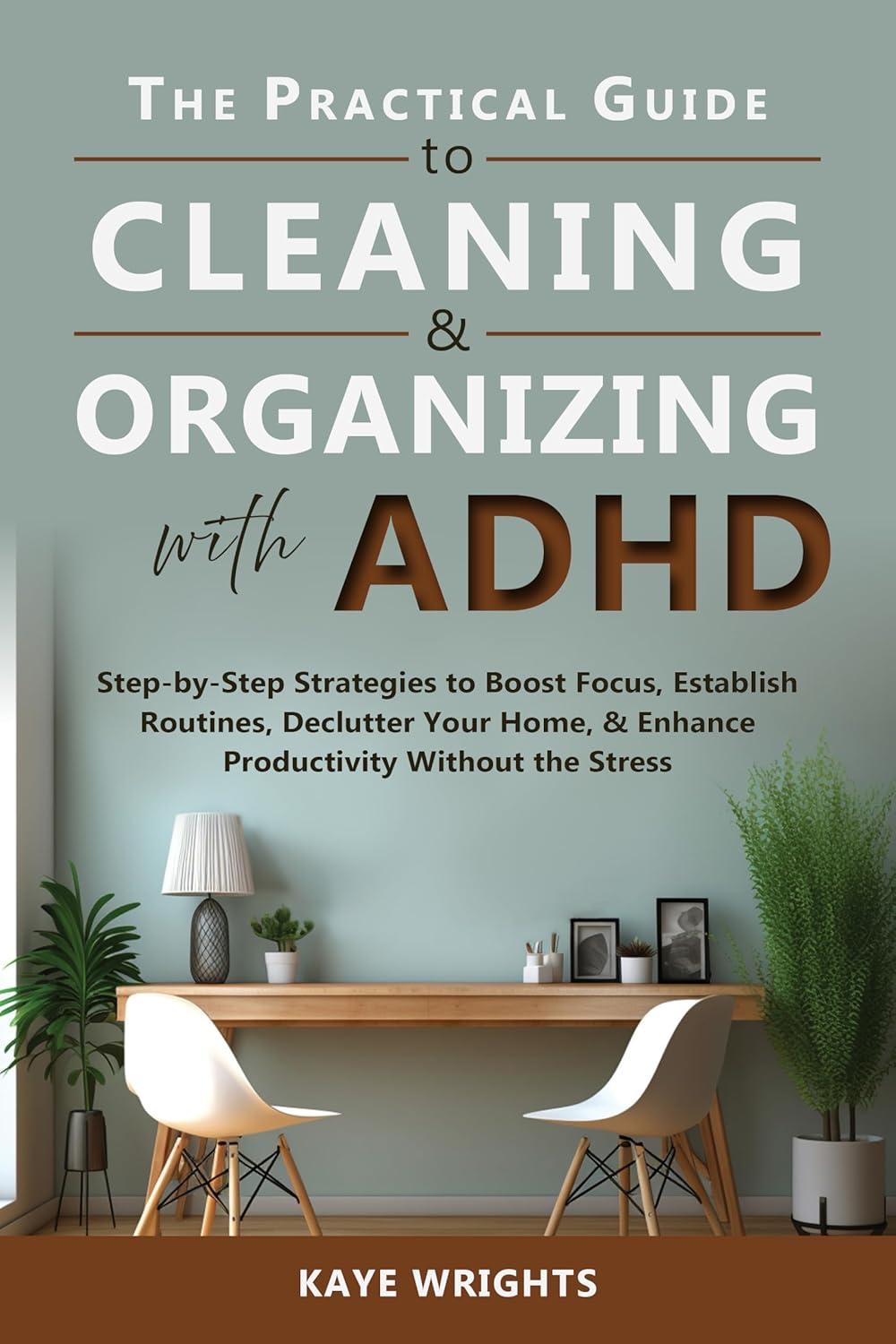
Reviewing Our Experience with ADHD Cleaning & Organizing Guide
In our experience with “The Practical Guide to Cleaning & Organizing with ADHD,” we found the book to be a valuable resource for individuals looking to enhance their productivity while managing attention challenges. The step-by-step strategies provided clear and actionable advice, making it easier for us to grasp complex concepts and translate them into our daily routines. We particularly appreciated the emphasis on establishing manageable rituals, which seemed to alleviate some of our stress around decluttering. The guide’s focus on minimizing distractions while cleaning not only helped us stay organized but also contributed to a more peaceful home environment. Overall, this book serves as a practical tool for anyone navigating the intersection of ADHD and household management, and we would recommend it to others seeking similar solutions.
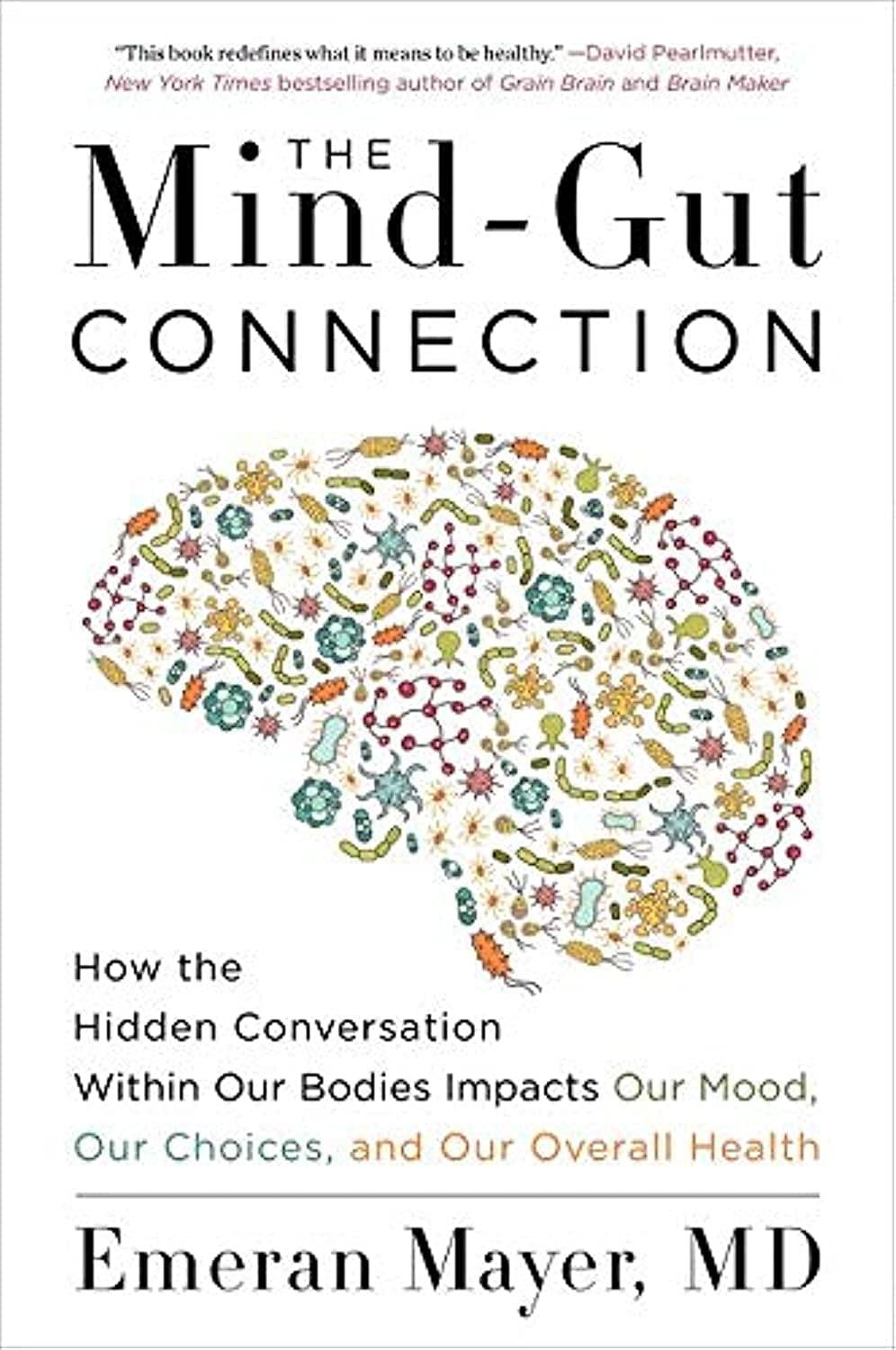
Exploring “The Mind-Gut Connection”: A Review of Its Insights
In our exploration of “The Mind-Gut Connection: How the Hidden Conversation Within Our Bodies Impacts Our Mood, Our Choices, and Our Overall Health,” we found a compelling synthesis of scientific research and practical insights. The authors present a well-structured argument that underscores the intricate relationship between our gut health and mental well-being. Through case studies and expert interviews, we gain a deeper understanding of how factors like diet, stress, and emotions interact to influence our overall health. We appreciate the accessibility of the content, making complex concepts understandable for readers regardless of their prior knowledge. Furthermore, the actionable strategies offered encourage us to consider our lifestyle choices in light of this connection. As we reflect on the insights gained, it becomes clear that recognizing the interplay between our mind and gut may be crucial for achieving holistic health.
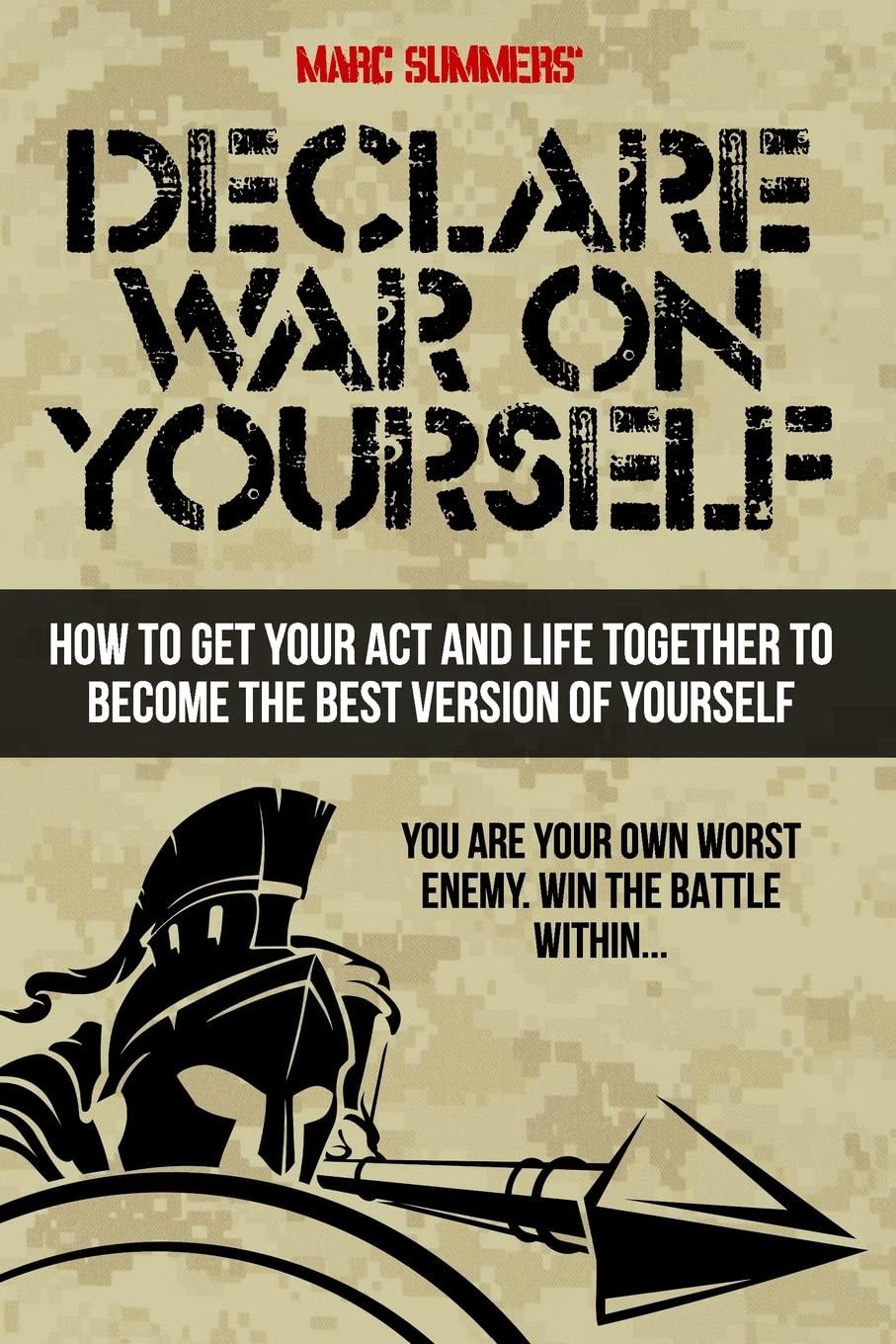
Assessing ‘Declare War on Yourself’: A Guide to Self-Improvement
In our exploration of self-improvement literature, “Declare War on Yourself: How to Get Your Act and Life Together to Become a Better Version of Yourself” stands out as a bold call to action. The book delves into the often daunting process of personal transformation, urging us to confront our habits, beliefs, and emotional barriers. Throughout our reading, we found the author’s approach refreshing—firm yet encouraging—as they blend practical strategies with motivational insights. Each chapter challenges us to reflect on our choices and fosters a sense of accountability, which can be both empowering and intimidating. The exercises included are structured to guide us through our personal battles, making the journey more manageable. Overall, “Declare War on Yourself” serves as a valuable resource for anyone seeking to initiate meaningful change in their lives, emphasizing that the path to becoming a better version of ourselves begins with self-awareness and commitment.
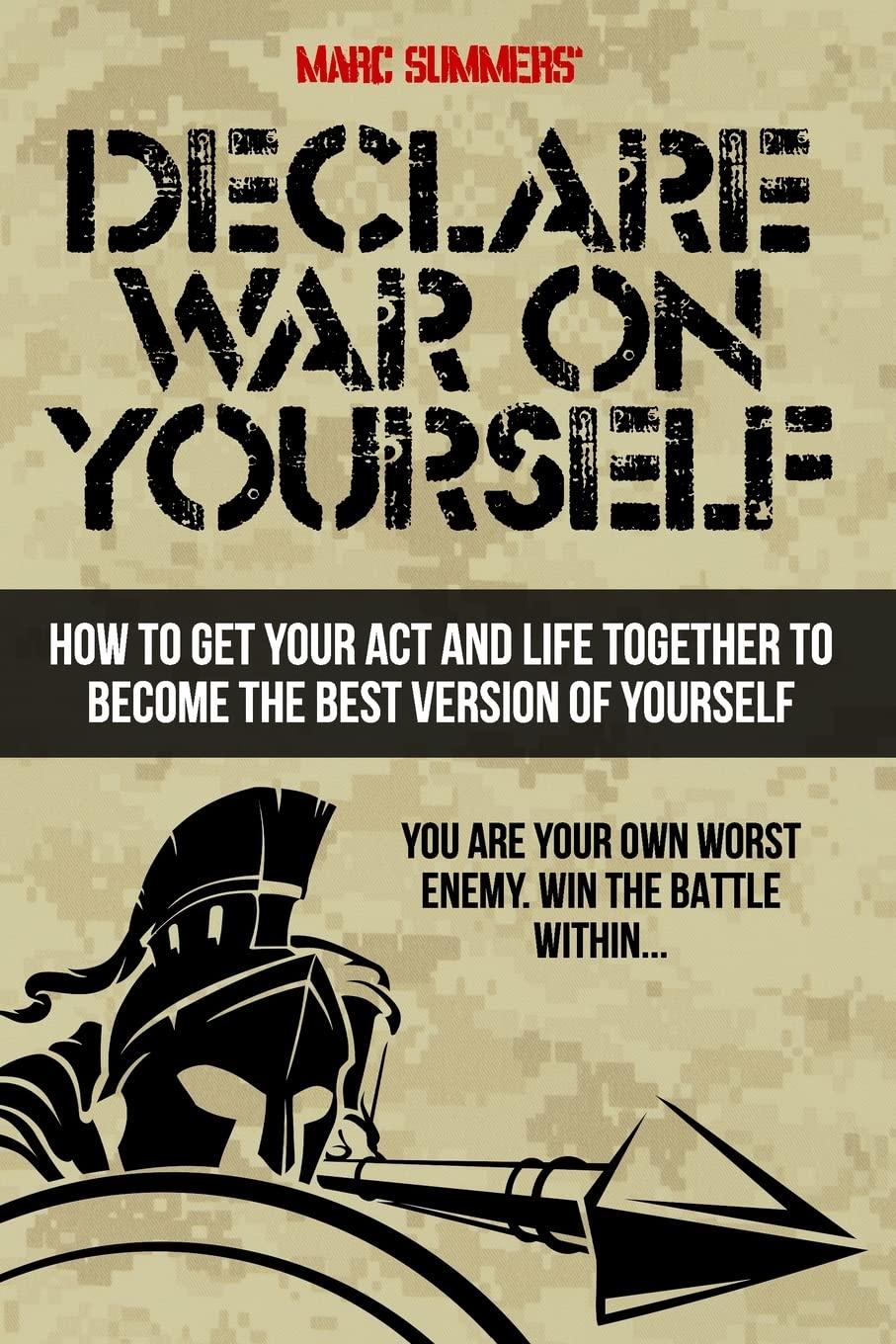
Exploring ‘Declare War on Yourself’: A Path to Self-Improvement
In our exploration of “Declare War on Yourself: How to Get Your Act and Life Together to Become a Better Version of Yourself,” we find a compelling guide that challenges us to take a proactive stance in our self-improvement journey. The author presents a no-nonsense approach, urging us to confront the barriers that hold us back from our true potential. With practical exercises and relatable anecdotes, we are encouraged to engage in introspection and accountability. The book emphasizes that the path to becoming a better version of ourselves is not just about motivation but also about actionable strategies. As we delve deeper into its pages, we discover that this isn’t merely a motivational read; it serves as a blueprint for personal transformation. We appreciate its straightforward message and the call to arms it presents for those willing to embark on a journey of self-discovery and improvement.
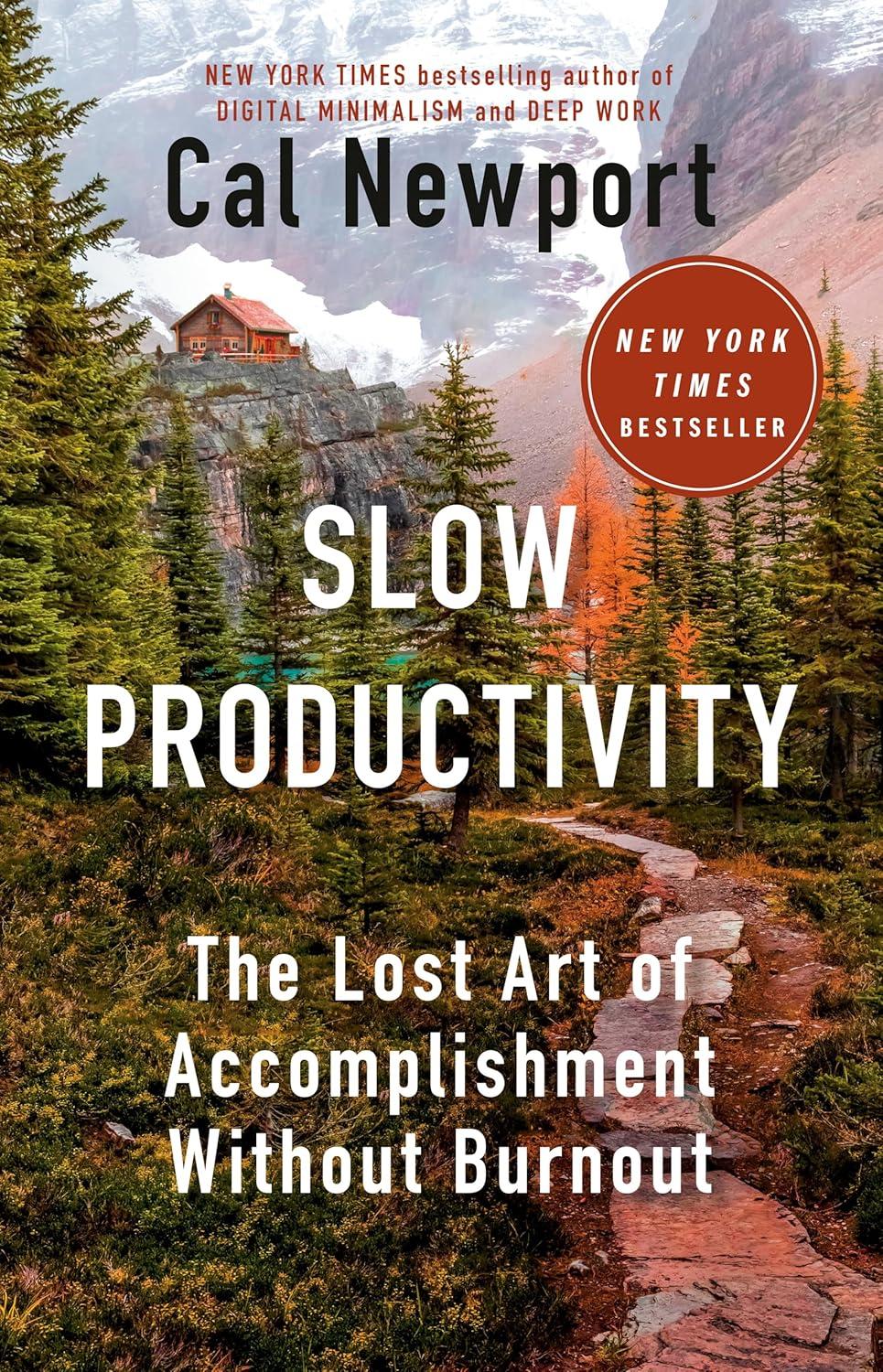
Exploring ‘Slow Productivity’: A Path to Burnout-Free Success
In our journey through the fast-paced demands of modern work life, we often find ourselves teetering on the edge of burnout. “Slow Productivity: The Lost Art of Accomplishment Without Burnout” presents a compelling alternative. This book invites us to rethink our approach to work by emphasizing sustainable strategies over relentless speed. We appreciate how the author blends practical advice with insightful anecdotes, illustrating the benefits of measured progress. By encouraging us to embrace patience and deliberate action, the book reshapes our perspective on success. As we delve into its pages, we discover how embracing a slower, more intentional pace can lead to greater fulfillment and more substantial achievements, all while safeguarding our well-being. Ultimately, this book serves as a crucial reminder that productivity does not have to come at the expense of our mental health.
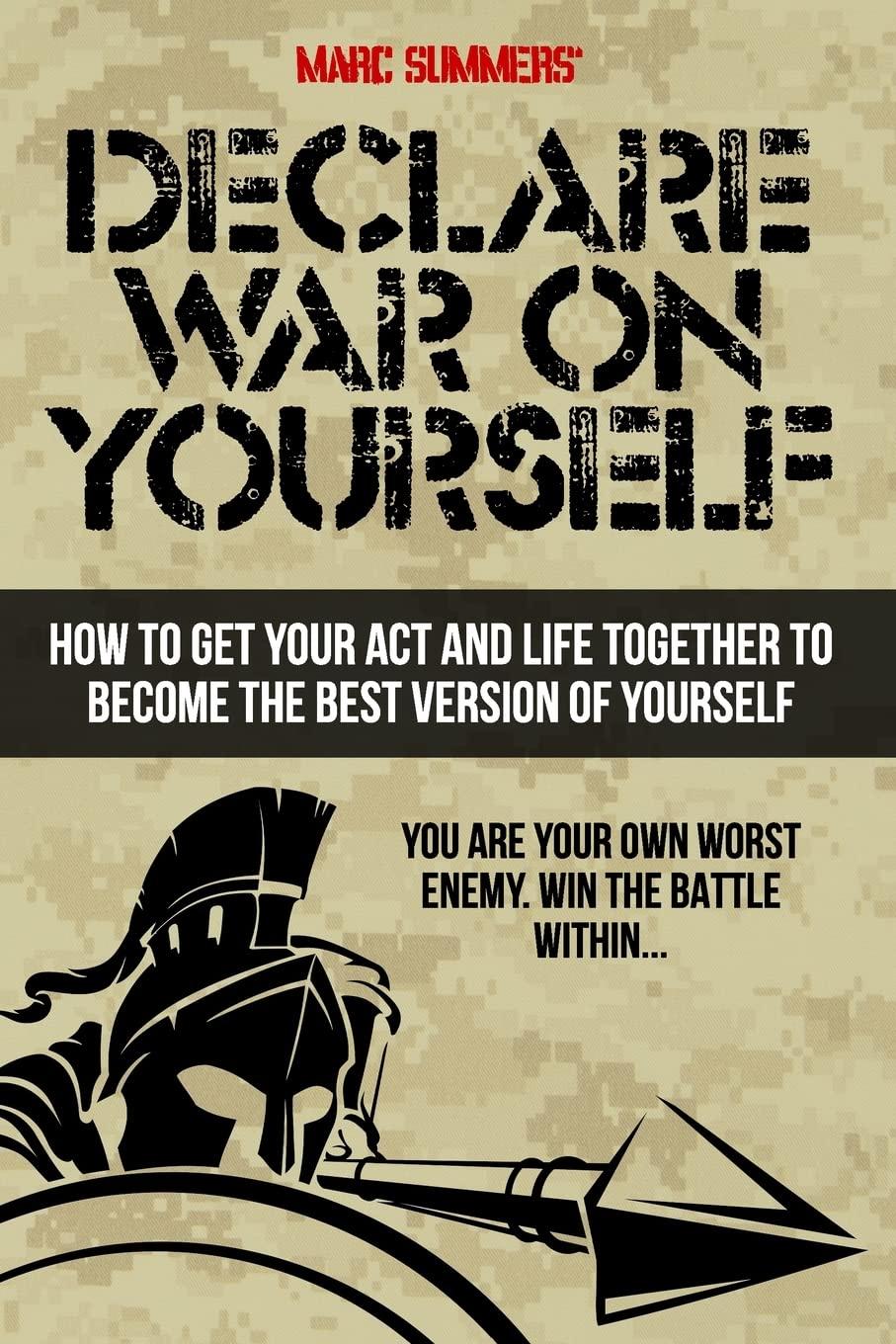
Reviewing ‘Declare War on Yourself’: A Path to Self-Improvement
In our exploration of self-improvement literature, we recently delved into “Declare War on Yourself: How to Get Your Act and Life Together to Become a Better Version of Yourself.” This book presents a no-nonsense approach to personal transformation, urging readers to confront their shortcomings head-on. The author employs a mixture of practical advice and motivational anecdotes to encourage us to take ownership of our lives.
Throughout its pages, we found techniques that resonate with anyone seeking genuine change, such as goal-setting and mindful reflection. However, the tone can sometimes border on aggressive, which may not appeal to everyone. Despite this, we appreciate the candid approach and the emphasis on accountability. Overall, “Declare War on Yourself” offers valuable insights that can guide us on our journey toward becoming better versions of ourselves, making it a worthwhile addition to our self-help library.
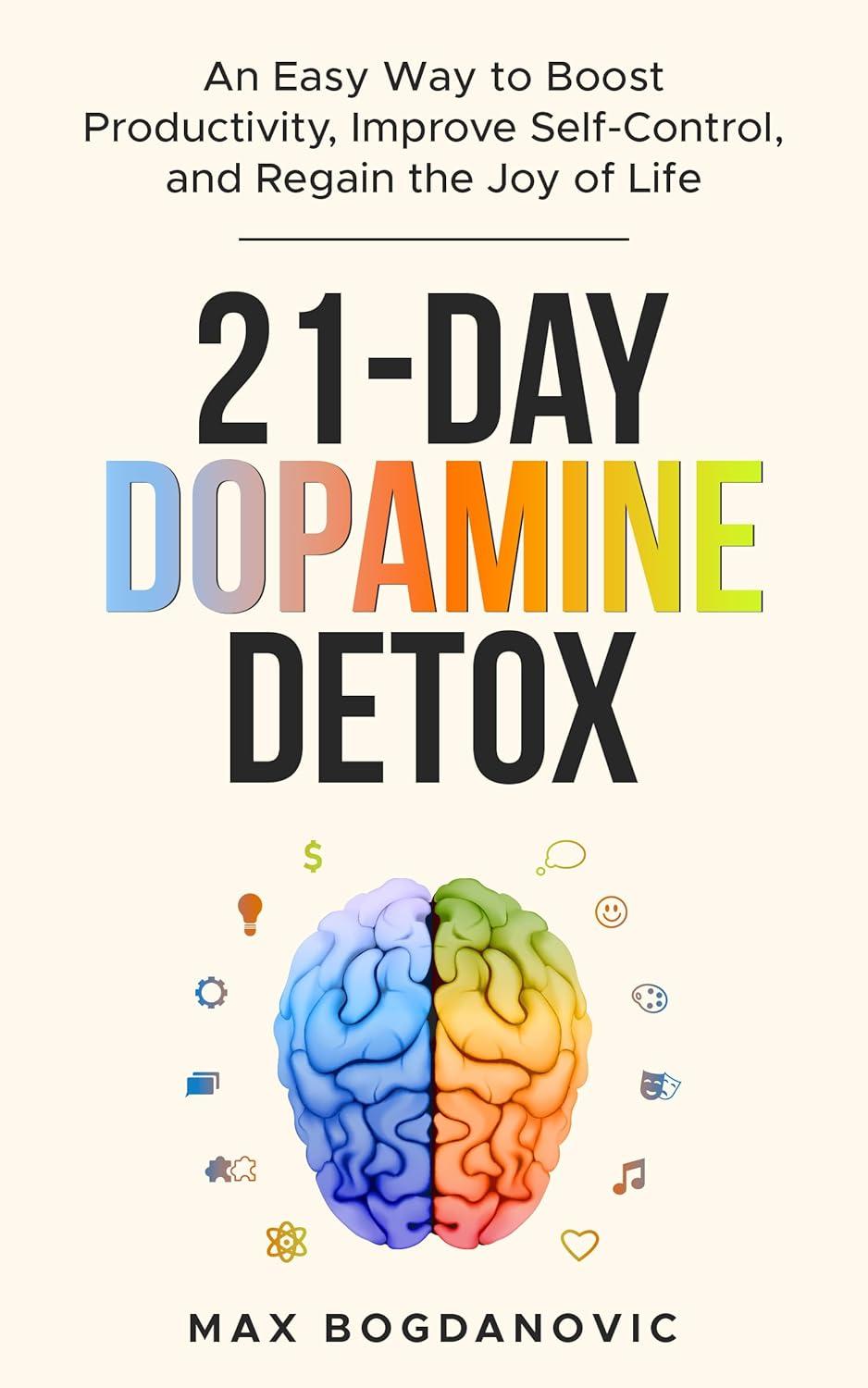
Exploring the 21-Day Dopamine Detox: Our Review and Insights
In our exploration of the “21-Day Dopamine Detox,” we aimed to understand its potential impact on productivity, self-control, and overall well-being. The book presents a structured approach to reducing overstimulation from modern distractions, guiding us through a three-week journey designed to recalibrate our brain’s reward system. We appreciated the clear, actionable steps provided, which made it easier to implement the detox in our daily lives. Each day focuses on specific tasks and reflections that encourage mindfulness and intentionality. However, we found that the effectiveness of the detox can vary depending on individual circumstances and lifestyle. While some sections resonated deeply, others felt repetitive. Overall, we believe the “21-Day Dopamine Detox” offers valuable insights for those looking to regain focus and joy, though personal commitment and adaptability play crucial roles in achieving desired outcomes.
